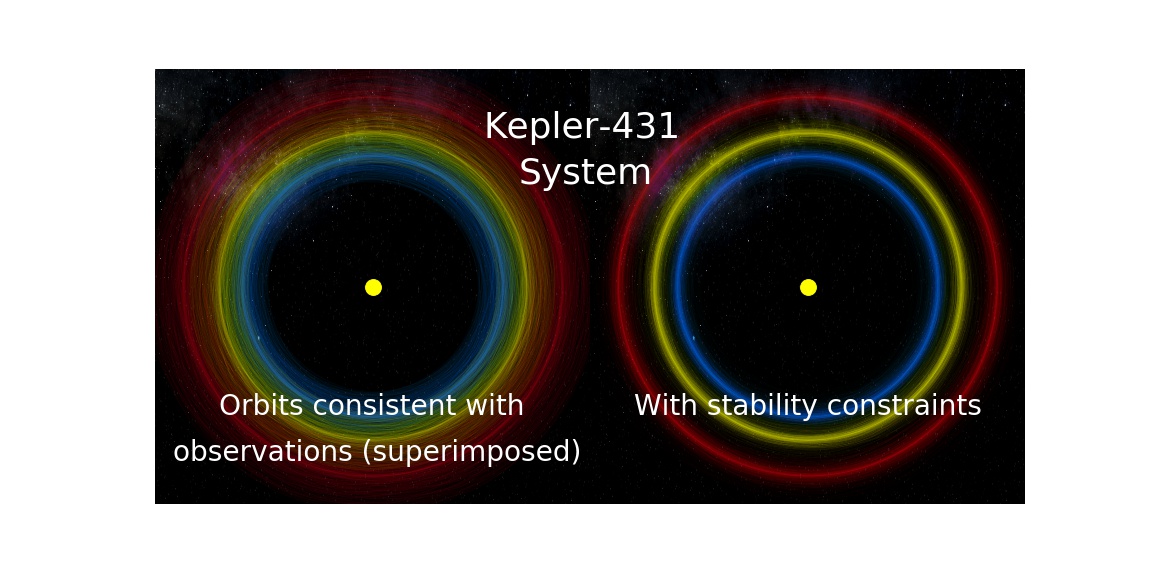Stability of Planetary Orbital Configurations Klassifier



Let's predict the probability that a given 3-planet system is stable:
import rebound
from spock import FeatureClassifier
model = FeatureClassifier()
sim = rebound.Simulation()
sim.add(m=1.)
sim.add(m=1.e-5, P=1., e=0.03, l=0.3)
sim.add(m=1.e-5, P=1.2, e=0.03, l=2.8)
sim.add(m=1.e-5, P=1.5, e=0.03, l=-0.5)
sim.move_to_com()
model.predict_stable(sim)
>>> 0.011505529The best place to start is the example notebooks in jupyter_examples/.
SPOCK is compatible with both Linux and Mac.
Install with:
pip install spock
SPOCK relies on XGBoost, which has installation issues with OpenMP on Mac OSX. If you have problems (dmlc/xgboost#4477), the easiest way is probably to install homebrew, and:
brew install libomp pip install spock
